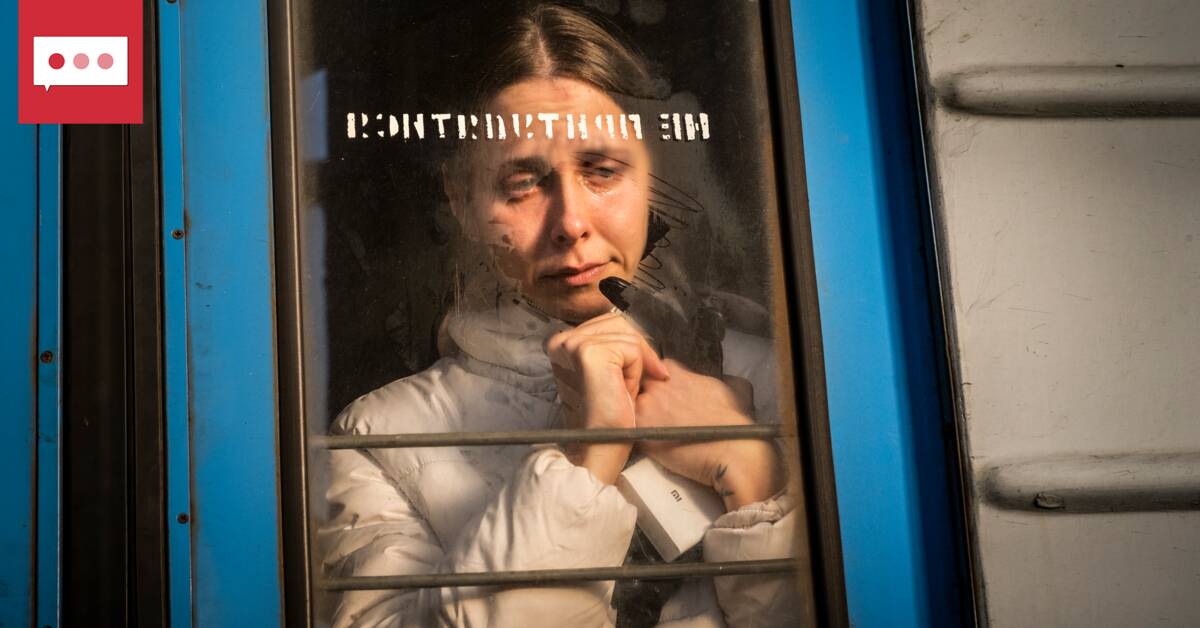Until March 16, 9,851 people who fled Ukraine have sought refuge in Sweden, according to the Swedish Migration Board.
One of them is Olha Lysko, who comes from the city of Rivne in western Ukraine.
- I'm pregnant and my friend has children.
We came nine people of which four women and five children.
Right now we honestly do not know much but we hope to get answers to questions today, she says.
Olha Lysko is one of many who have stood in the long queue outside the Swedish Migration Board in Sundbyberg.
For the first time, the EU has activated the so-called mass protection directive, which is intended to facilitate reception for the countries and thus speed up the process of providing protection to refugees.
No individual trials
In Sweden, the directive means that, unlike a normal asylum process, no individual assessments are made, which makes it much faster.
But at the same time, you do not get the full right to the same things as when you are granted asylum.
For example, adults are not entitled to SFI, Swedish for immigrants, nor to full medical care.
- It is very positive that this directive has been activated because now we know that many people will receive protection and it will go fast.
But since this is the first time, there are several question marks.
For example, it is not known what care needs this group of people will have, says Alexandra Segenstedt, migration expert at the Red Cross.
More ambiguities
According to Alexandra Segenstedt, another question mark is how EBO, the regulations on own housing, should be applied.
Those who come to Sweden according to the Mass Refugee Directive have the same right as asylum seekers to settle in their own accommodation, instead of in the Swedish Migration Board's temporary accommodation.
But if you choose to settle in certain places that have socio-economic challenges, you lose the right to daily allowance.
Unlike an asylum process, this continues to apply even after protection has been granted under the Directive.
Thus, you can lose the right to compensation during your entire time in Sweden, or until you get a different protection status.
Hear Alexandra Segenstedt, migration expert at the Red Cross, explain the directive in the clip above.

